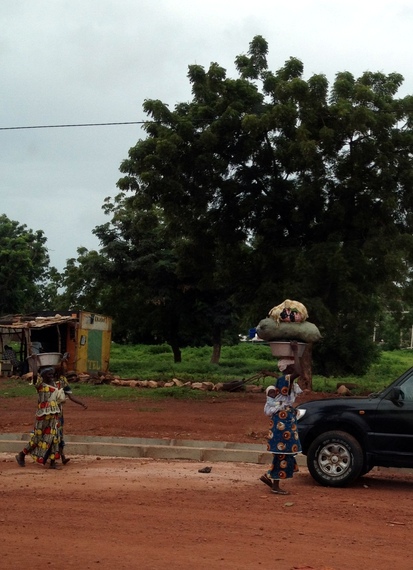As I write this piece I am preparing to leave my comfortable home in St. Louis for my summer "vacation" in an African nation ravaged by hunger, stalked by infectious diseases, and increasingly afflicted by climate change. I can hardly wait.
For two weeks, I'll be a volunteer in Ethiopia, sharing share my knowledge of genomics and bioinformatics with agricultural researchers there. And as on my previous working trips to sub-Saharan Africa, I'll have the opportunity to get a hard look at life as it is lived by billions of people in the developing world.
The experience, I know, will once again ground me in reality in a way that nothing else does. That's part of the reason I so look forward to it. The opportunity to be of service is the other. My only wish is that more Americans could share in this kind of experience. I think it could result in important changes to some of their views.
As part of my trip planning, for example, I've consulted the Centers for Disease Control and Prevention's (CDC's) Travelers Health Guide. Ethiopia, it informs me, is experiencing an ongoing measles outbreak, with nearly 10,000 cases confirmed by just early May.
The reason, of course, is a low immunization rate: only about 62 percent, according to the World Health Organization. And that low rate, in turn, is a function of many other problems, but above all inadequate access to health care. Getting your child immunized in sub-Saharan Africa may involve a lengthy trip by foot through difficult terrain to a place where your child might or might not get the vaccine. Under the circumstances, 62 percent is actually impressive.
Yet in our country, where access to childhood vaccines is rarely an issue, the State of California felt compelled recently to pass laws requiring parents to have their children inoculated. That's because so many parents there - including many who are prosperous and well-educated - have been refusing to get their children vaccinated out of religious conviction or personal beliefs.
In some California schools, The New York Times has reported, as many as half the students haven't received their required vaccinations - meaning their inoculation rates are lower than Ethiopia's. Is it a surprise that a measles outbreak that started at Disneyland last December sickened 131 people in the state, and spread anxiety around the country about the prospect for a much-bigger outbreak?
Many Americans who shun vaccines for their children cite a 1998 report that suggested a link between vaccines and autism. The fact that this alleged link was later proved fraudulent and retracted by the journal that published it doesn't budge them. They believe what they want.
How does one explain the ferocity of this kind of conviction? In many cases, I think it arises from its link to a larger concept - the notion of "all-natural living." That notion, in turn, entails a deep distrust of science and its products as well as the authorities - the American Medical Association, the National Academy of Sciences, etc. - who support scientific advances.
It almost goes without saying that many of these Americans are deeply opposed to genetically modified (GMO) crops. Scientific support for GMOs (statements like this one, for example, from the American Association for the Advancement of Science) impresses them no more than it does for vaccines.
So I wish that they could also see how much the people I've met in Africa crave the opportunity to plant seeds that would give them more robust and reliable harvests. I wish they could see how much people there want seeds that can better withstand insects and Africa's increasingly common droughts.
GMOs have generally been kept off the market in Africa because governments there have deferred to the kinds of attitudes these Americans - and many more Europeans - embrace. This opposition is beginning to soften, but I suspect it would melt like ice in the Sahara if more Americans and Europeans could see the consequences for themselves.
What ironies they would also see in the situation! For example, among those who cherish the "all-natural" mindset, there is often a deeply felt concern for the wellbeing of women and children -- an attitude I personally share. So one wonders: Do these people realize that one of the keys - if not the key - to improving the lot of women and children in the developing world is empowering women and improving their incomes? And that because the majority of these women are farmers, the best way to do that is to help them improve their harvests? And that with this improvement, they can also lift their children out of poverty, by sending them to school?
I know these things are true because I've seen them firsthand. And as difficult as life is in Ethiopia, I look forward to being there soon and seeing how conditions can be improved. But we have to use science, and we have to be grounded in reality.
